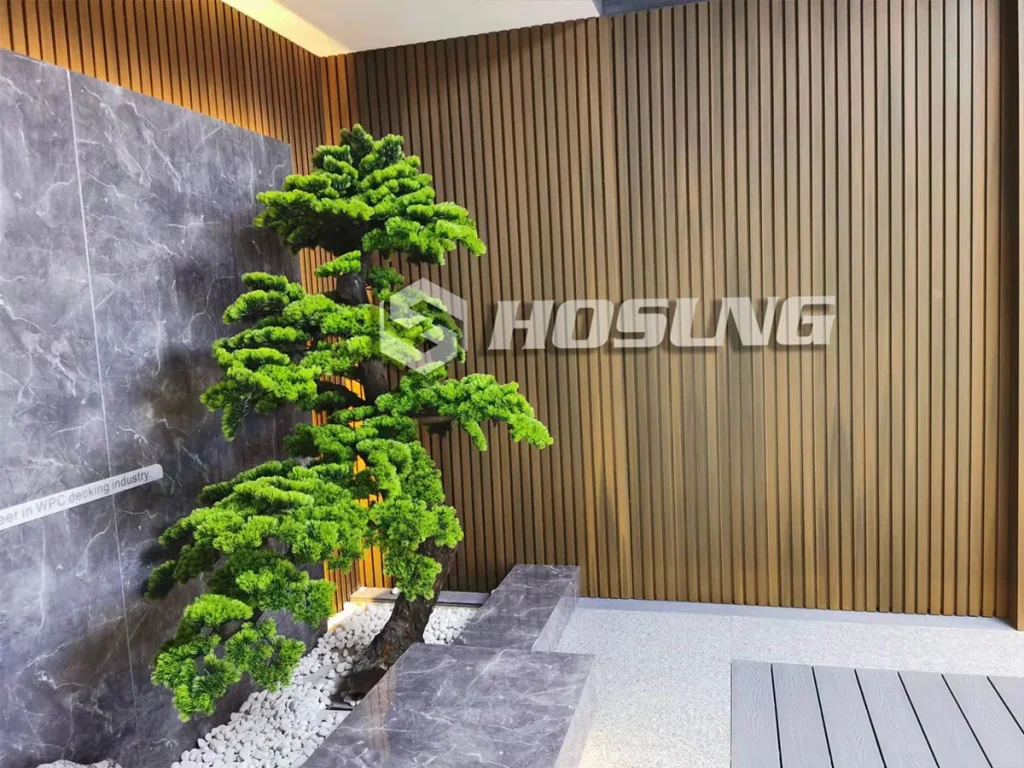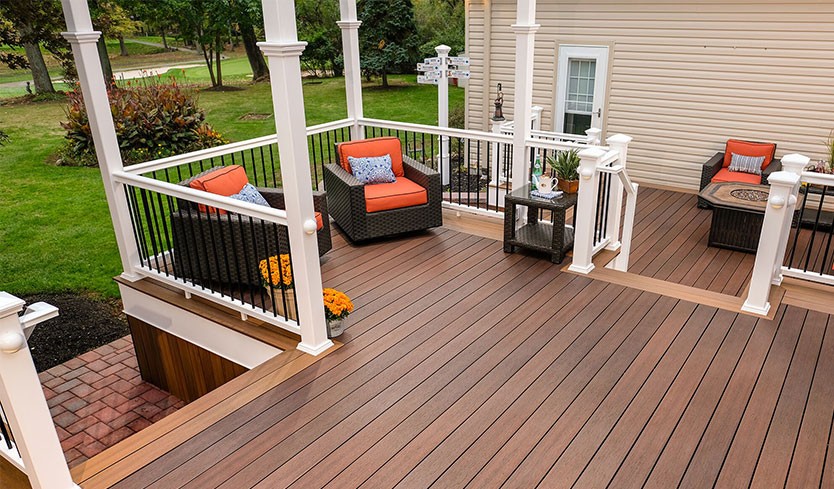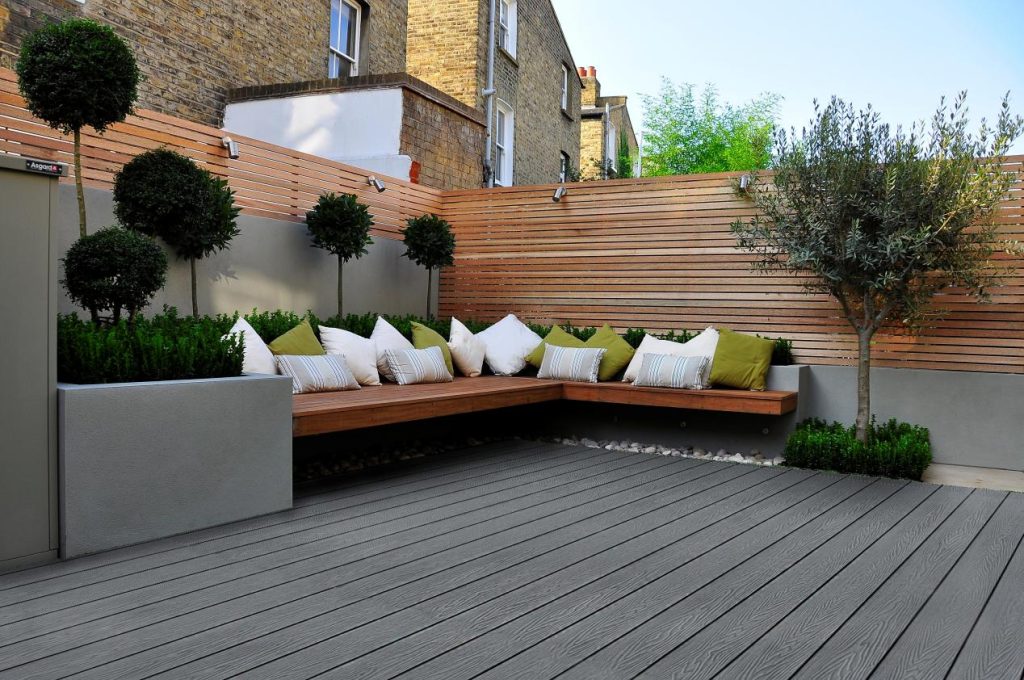When planning a home renovation, office upgrade, or exterior cladding project, one of the most common questions people ask is: “What is the WPC panel cost?” Understanding the cost of wood plastic composite (WPC) panels is essential before making a purchase decision. Next, Hosung will provide a detailed breakdown of WPC panel cost, explore different types of WPC panels and their price ranges, analyze cost factors, compare WPC with other panel materials, and help you make an informed decision for your next project.
Table of Contents
Know More About WPC Panels
WPC panels are engineered composite boards made from a blend of wood flour, thermoplastics, and additives. They are manufactured using high-pressure extrusion or molding techniques, giving them the look of natural wood while maintaining enhanced durability.
These panels are widely used for:
Wall cladding (interior and exterior)
Ceiling decoration
Partition walls
Furniture applications
Decking and fencing
The popularity of WPC panels has grown because they provide the aesthetic appeal of wood with better resistance to moisture, termites, UV rays, and fire. With such advantages, understanding the WPC panel cost becomes essential to balance budget and quality.
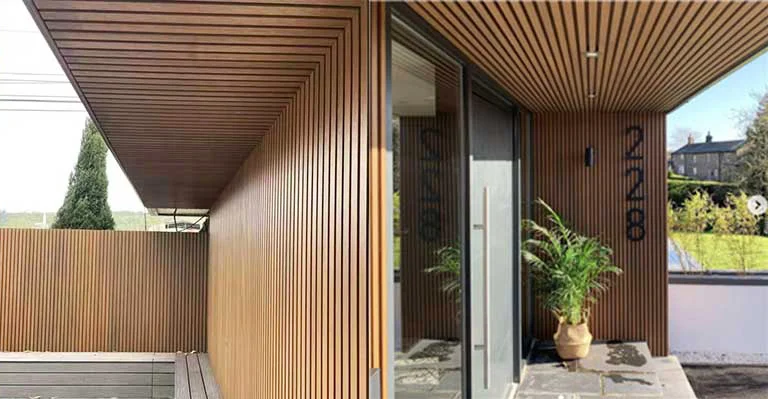
Factors Affecting WPC Panel Cost
2. Factors Affecting WPC Panel Cost
The cost of WPC panels is not uniform; several factors influence the final price. Let’s break them down:
2.1 Type of WPC Panel
Hollow WPC panels – Lightweight, cheaper, suitable for decorative uses.
Solid WPC panels – Stronger, more durable, slightly higher cost.
3D embossed WPC panels – Advanced surface treatment increases cost.
2.2 Thickness and Size
6mm, 8mm, 12mm WPC panels – Commonly used for walls, cost-effective.
19mm WPC panels – More expensive, often used for furniture and heavy-duty applications.
Custom sizes – Can add 10–20% to the cost.
2.3 Finish and Surface Treatment
Wood grain finish – Looks natural but may cost 5–10% more.
Matte or glossy finish – Prices vary based on demand and aesthetics.
Co-extrusion surface – Premium option with higher durability, higher cost.
2.4 Brand and Manufacturer
Well-known brands often charge more due to quality assurance, certifications, and warranty services. Local or smaller manufacturers may offer lower prices.
2.5 Installation Costs
The cost of WPC panels is not just about material; installation can contribute 20–40% of the total budget. Professional installers charge based on panel type, surface preparation, and complexity.
2.6 Location and Shipping
Prices vary by country. For example:
India – WPC wall panel cost ranges from ₹200–₹600 per sq. ft.
USA – WPC panel cost may range between $20–$60 per sq. ft. including installation.
Europe – Costs are slightly higher due to strict quality standards.
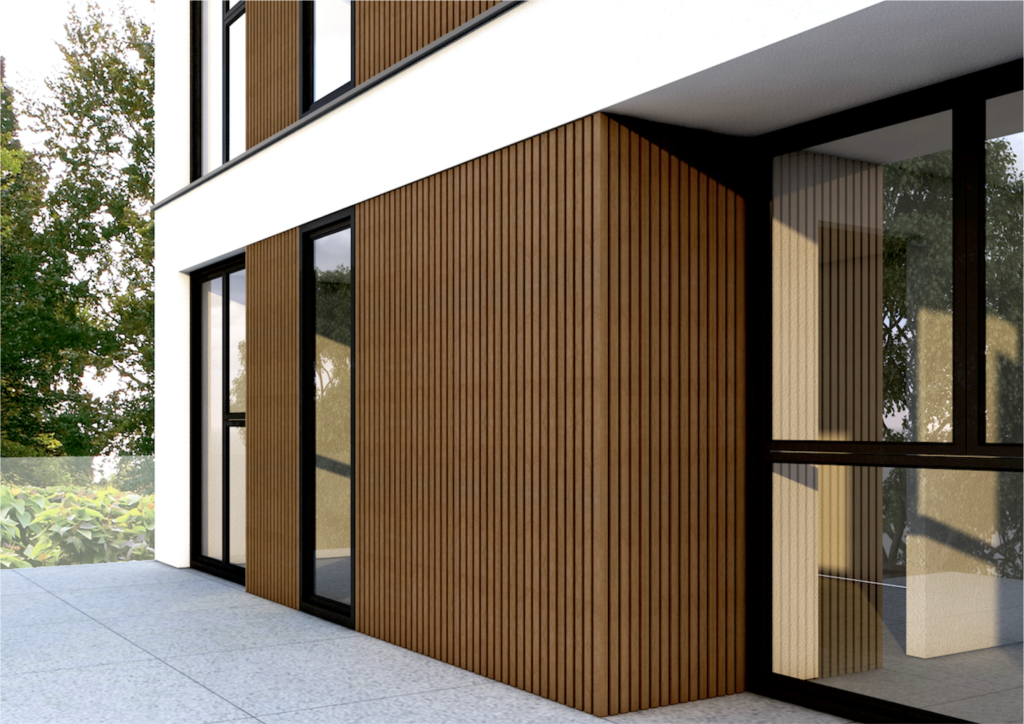
Average WPC Panel Cost by Type
Here is a breakdown of average WPC panel costs by type:
| WPC Panel Type | Thickness | Price Range (per sq. ft.) |
|---|---|---|
| Hollow WPC Wall Panel | 6mm–8mm | $3 – $8 |
| Solid WPC Wall Panel | 10mm–20mm | $8 – $18 |
| WPC Ceiling Panel | 6mm–12mm | $2 – $6 |
| WPC Decorative Panel | 8mm–12mm | $6 – $15 |
| WPC Cladding (Exterior) | 12mm–19mm | $10 – $25 |
| WPC Decking Panel | 20mm–25mm | $15 – $40 |
| 3D Embossed WPC Panel | 8mm–12mm | $12 – $30 |
Note: Prices are approximate and vary depending on region and supplier.
Comparing WPC Panel Cost With Other Materials
When choosing a paneling material, it’s important to compare WPC panel cost with other alternatives such as natural wood, PVC panels, and aluminum composite panels (ACP). Each material has its own strengths and limitations, and the choice often depends not just on initial price but also on long-term maintenance, appearance, and application.
4.1 WPC Panels vs Natural Wood
Natural Wood has always been the traditional choice for wall cladding, furniture, and decking. However, its cost and maintenance requirements are much higher.
Cost: $15–$50 per sq. ft., depending on wood species (oak, teak, mahogany, etc.).
Maintenance: Requires polishing, sealing, and termite treatment every 1–2 years.
Durability: Prone to cracking, warping, and insect damage in humid or outdoor environments.
Aesthetic Appeal: Offers unmatched natural beauty and variety in grain.
WPC Panels, by contrast:
Cost: $5–$25 per sq. ft. on average, much lower than premium hardwood.
Maintenance: Almost maintenance-free; only occasional cleaning is required.
Durability: Resistant to termites, water, and UV rays, making them ideal for both indoor and outdoor use.
Aesthetic Appeal: Can mimic wood grain, but some purists still prefer natural timber.
👉 Who should choose what?
If you want a luxury, authentic look and are willing to pay for upkeep, natural wood may be your choice.
If you prefer long-term cost savings, eco-friendliness, and durability, WPC panels are the smarter option.
4.2 WPC Panels vs PVC Panels
PVC Panels are popular for low-cost wall and ceiling applications, especially indoors.
Cost: $2–$8 per sq. ft., making them the cheapest option.
Durability: Waterproof but less resistant to impact and bending; tends to crack over time.
Aesthetic Appeal: Available in many colors but often looks less natural than wood or WPC.
Applications: Best for bathrooms, kitchens, and temporary structures.
WPC Panels, in comparison:
Cost: $5–$25 per sq. ft., more expensive than PVC but still affordable.
Durability: Stronger, heavier, and more resilient against mechanical stress.
Aesthetic Appeal: Closer to natural wood, available in matte, glossy, and embossed finishes.
Applications: Suitable for both interiors and exteriors, including commercial use.
👉 Who should choose what?
PVC is ideal for budget-conscious homeowners needing a quick solution in low-traffic areas.
WPC panels are better for long-term investment, especially where both beauty and durability matter.
4.3 WPC Panels vs Aluminum Panels (ACP)
Aluminum Composite Panels (ACP) are widely used in modern architecture, especially for exterior façades.
Cost: $10–$30 per sq. ft., depending on thickness and brand.
Durability: Weather-resistant, non-combustible, and long-lasting.
Aesthetic Appeal: Sleek, modern, metallic look; comes in a wide range of colors.
Applications: Skyscrapers, office buildings, signage, and exterior cladding.
WPC Panels, in contrast:
Cost: $5–$25 per sq. ft., often cheaper than ACP.
Durability: Good against moisture and sunlight, though less fire-resistant than ACP.
Aesthetic Appeal: Warmer and more natural look compared to metallic ACP.
Applications: Houses, hotels, retail stores, and interior design projects.
👉 Who should choose what?
ACP is perfect for those who want a futuristic, industrial finish and fire-resistant properties.
WPC panels are the right fit for homeowners or businesses seeking a more natural, eco-friendly appearance without overspending.
4.4 Long-Term Cost Comparison
When comparing only initial prices, PVC seems cheapest, followed by WPC, then ACP, and finally natural wood at the top. But long-term costs paint a different picture:
Natural Wood: Highest long-term cost due to regular maintenance and replacements.
PVC Panels: Low upfront cost but shorter lifespan, requiring frequent replacement.
ACP Panels: High upfront cost but durable and requires little maintenance.
WPC Panels: Mid-range upfront cost with excellent longevity and low maintenance, making them the most cost-efficient over a 10–15 year period.
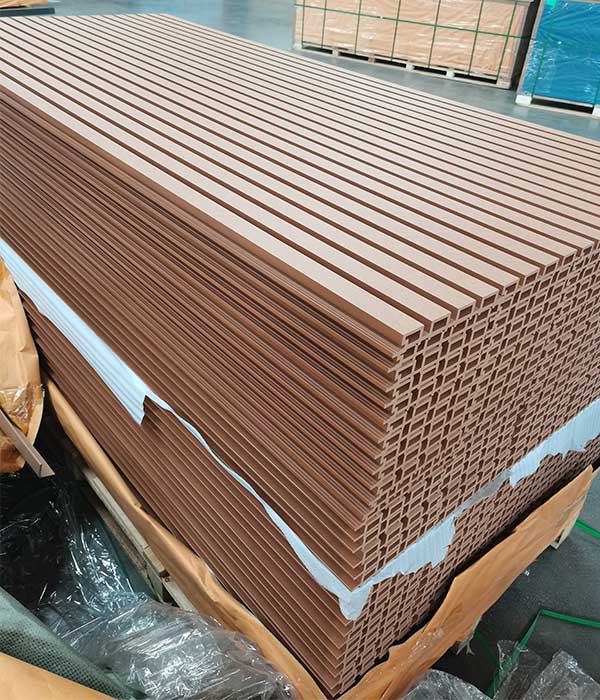
How to Estimate Your WPC Panel Project Cost
To calculate the total cost of your project:
Measure the Area – Determine the surface area in sq. ft. or sq. meters.
Choose the Panel Type – Hollow for decorative use, solid for durability.
Check Price per Sq. Ft. – Use the average ranges provided.
Add Installation Charges – 20–40% of material cost.
Consider Extra Costs – Trims, fasteners, adhesives, and finishing.
Example Calculation:
Area = 200 sq. ft.
WPC wall panel cost = $10/sq. ft.
Material cost = $2000
Installation (30%) = $600
Total cost = $2600
Pros and Cons of WPC Panels (Cost Perspective)
Advantages
Long lifespan reduces replacement cost.
Low maintenance saves annual expenses.
Resistant to termites and water damage.
Environmentally friendly, made from recycled materials.
Disadvantages
Higher initial cost than PVC or MDF panels.
Limited variety compared to natural wood.
Requires professional installation for best results.
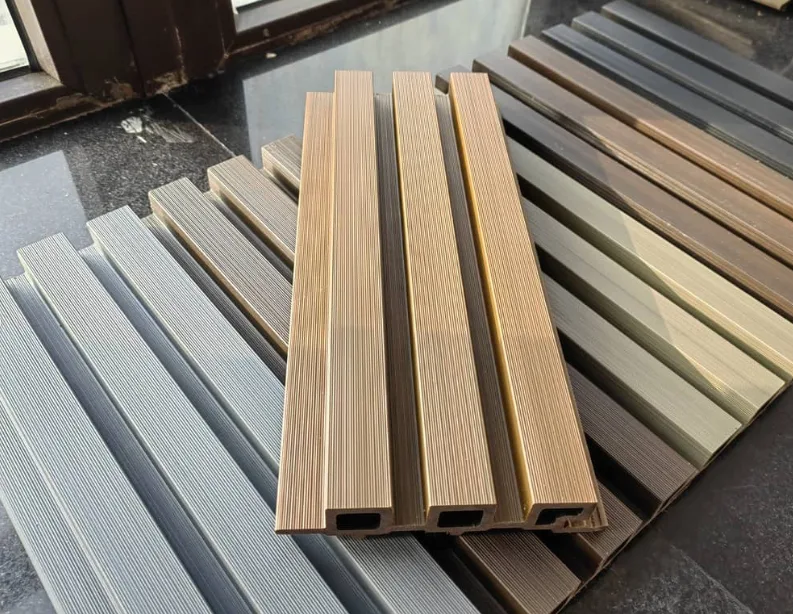
How to Save Money on WPC Panel Cost
Buy in bulk – Many suppliers offer discounts on large orders.
Compare suppliers – Online and local vendors have different price ranges.
Choose hollow panels for areas with low structural load.
DIY installation – If possible, reduces labor cost.
Look for promotions – Seasonal discounts can cut costs by 10–20%.
Future Trends in WPC Panel Cost
As demand for sustainable materials increases, WPC panel costs are likely to stabilize or decrease due to:
Advances in production technology.
Increased competition among manufacturers.
Growing preference for eco-friendly construction materials.
However, premium products such as co-extrusion and embossed WPC panels will remain higher in price due to advanced surface treatments.
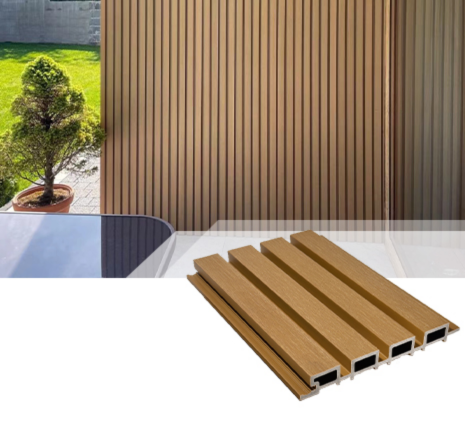
Conclusion
The WPC panel cost varies depending on type, thickness, surface finish, and installation method. On average, prices range from $2 to $40 per sq. ft., making WPC a mid-range yet highly durable option for both residential and commercial projects. Compared to wood, PVC, and aluminum, WPC offers a balanced solution of cost-efficiency, durability, and aesthetics.
When planning your budget, always consider not only the material cost but also installation, shipping, and accessories. With smart choices and bulk purchasing, you can enjoy the benefits of WPC panels without overspending.
If you are looking for long-lasting, low-maintenance, and eco-friendly wall or ceiling solutions, WPC panels are worth the investment. Want to get the wholesale price of WPC panels? Contact Hosung right now!

